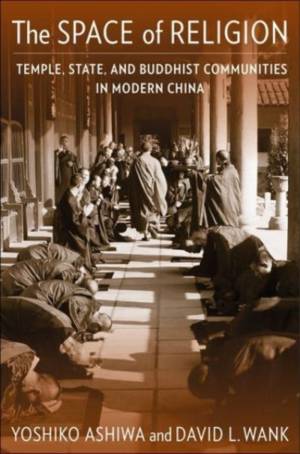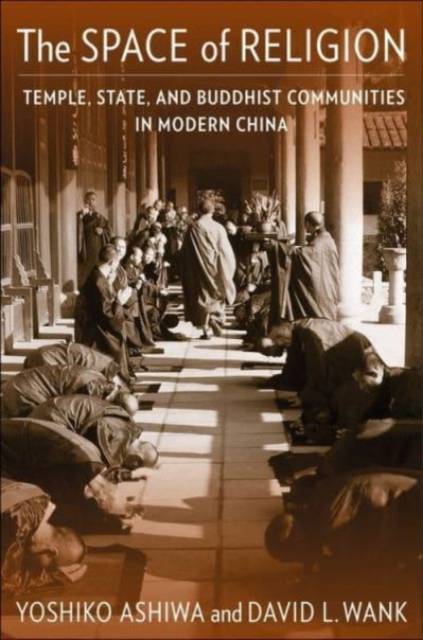
Bedankt voor het vertrouwen het afgelopen jaar! Om jou te bedanken bieden we GRATIS verzending (in België) aan op alles gedurende de hele maand januari.
- Afhalen na 1 uur in een winkel met voorraad
- In januari gratis thuislevering in België
- Ruim aanbod met 7 miljoen producten
Bedankt voor het vertrouwen het afgelopen jaar! Om jou te bedanken bieden we GRATIS verzending (in België) aan op alles gedurende de hele maand januari.
- Afhalen na 1 uur in een winkel met voorraad
- In januari gratis thuislevering in België
- Ruim aanbod met 7 miljoen producten
Zoeken
The Space of Religion
Temple, State, and Buddhist Communities in Modern China
Yoshiko Ashiwa, David L Wank
€ 237,45
+ 474 punten
Uitvoering
Omschrijving
Finalist, 2024 Award for Excellence in the Study of Religion in Analytical-Descriptive Studies, American Academy of Religion
Honorable Mention, 2024 Francis H.K. Hsu Book Prize, Society for East Asian Anthropology The Nanputuo Temple in the southeastern Chinese city of Xiamen has been a cherished site for the worship of the bodhisattva Guanyin for centuries. It was a center of modernizing Buddhism in the early twentieth century and a flagship for the revival of Buddhism after state suppression during the Cultural Revolution. The Space of Religion takes readers inside the Nanputuo Temple in order to explore the practice of Buddhism in modern China and the complex relationship between Buddhism and the Chinese state. Based on three decades of ethnographic research, Yoshiko Ashiwa and David L. Wank tell the story of Nanputuo against the backdrop of a dramatic stretch of Chinese history. They vividly depict episodes such as renovating the halls, reestablishing ties with overseas Chinese donors, conflicts with local government, revival of ritual life, reopening of its Buddhist academy, and the passion of the Guanyin birthday festival. To understand Nanputuo, Buddhist communities, and other temples in Xiamen, Ashiwa and Wank develop the concept of religion as a space constituted by physical, semiotic, and institutional dimensions. They also show how the Chinese state and Buddhism have each adapted to the other, as the temple has adjusted to government policy while the state has deployed Buddhism in its promotion of Chinese culture. This interdisciplinary book is both a theoretically generative analysis of religious spaces and an empirically rich account of the recovery of Buddhism in China after the Mao era.Specificaties
Betrokkenen
- Auteur(s):
- Uitgeverij:
Inhoud
- Aantal bladzijden:
- 440
- Taal:
- Engels
- Reeks:
Eigenschappen
- Productcode (EAN):
- 9780231197342
- Verschijningsdatum:
- 29/08/2023
- Uitvoering:
- Hardcover
- Formaat:
- Genaaid
- Afmetingen:
- 152 mm x 229 mm
- Gewicht:
- 811 g

Alleen bij Standaard Boekhandel
+ 474 punten op je klantenkaart van Standaard Boekhandel
Beoordelingen
We publiceren alleen reviews die voldoen aan de voorwaarden voor reviews. Bekijk onze voorwaarden voor reviews.









